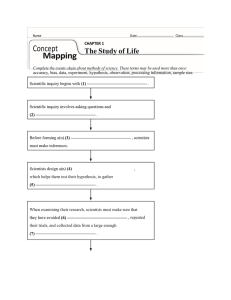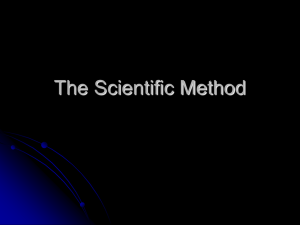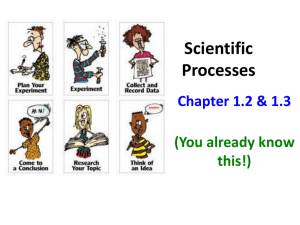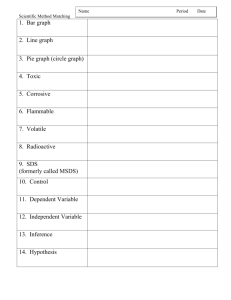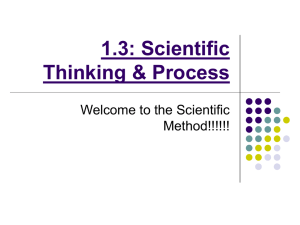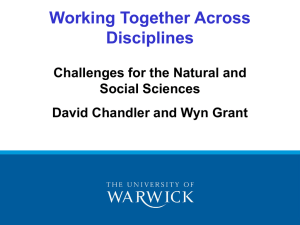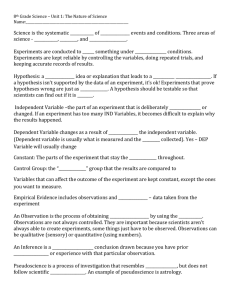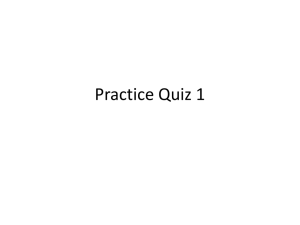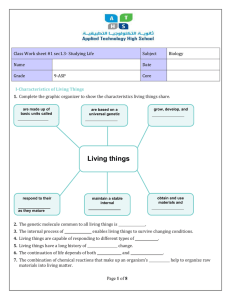Chapter 1 Biology
advertisement
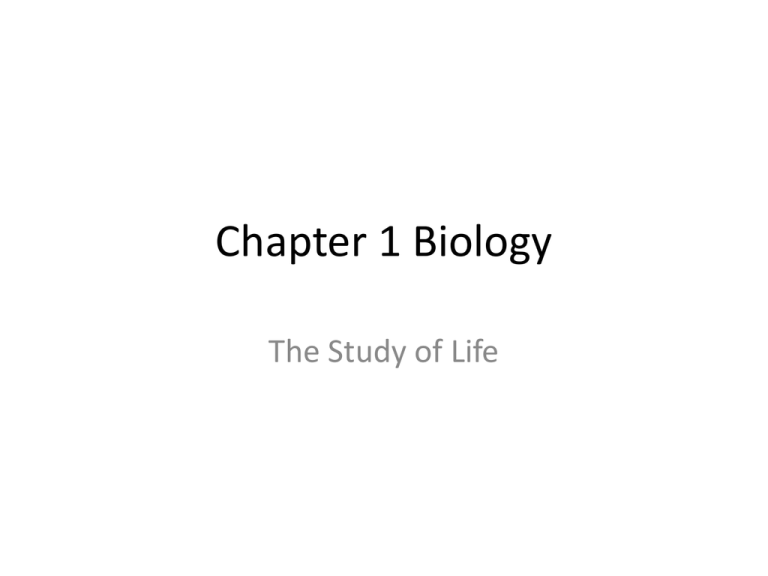
Chapter 1 Biology The Study of Life Introduction to Biology • The science of Life—Name 3 possible topics biologists study. (p. 4) • What do biologists do? (pp. 4-6) – Study diversity of life – Research disease – Develop technologies – Improve agriculture – Preserve the environment Characteristics of Life (pp. 6-10) • List characteristics of life and an example – – – – – – – – – Made of one or more cells Displays organization Growth Development Reproduces Responds to stimuli Requires energy Maintains homeostasis Adaptations evolve over time Nature of science (pp.11-15) • • • • • What is science? What is pseudo-science? Theory Law What is the difference between theory and laws of science? What do scientists do? (p. 12-14) • • • • • • • Make observations Question Test hypotheses Collect data Analyze data Make conclusions Collaborate and review others’ work • Why do scientists publish their work? (p. 14) • What is the importance of science literacy? (p. 15) • Why are ethics important? (p. 15) Methods of Science (pp. 16-21) • • • • • Ask a question. Make observations. Make inferences. Use the scientific method. Form a hypothesis (What makes a good hypothesis? • Collect data – Types of data Controlled Experiments • • • • • • • Control group—comparison Experimental group—receives the variable Independent variable—being tested Dependent variable—what’s being measured Constants—what’s the same You can only test one variable at a time!! Use the metric system (SI)—based on powers of ten (meters, liters, grams) • Analyze data (Scientists must repeat experiments!!) • Report conclusions • Don’t forget lab safety!
